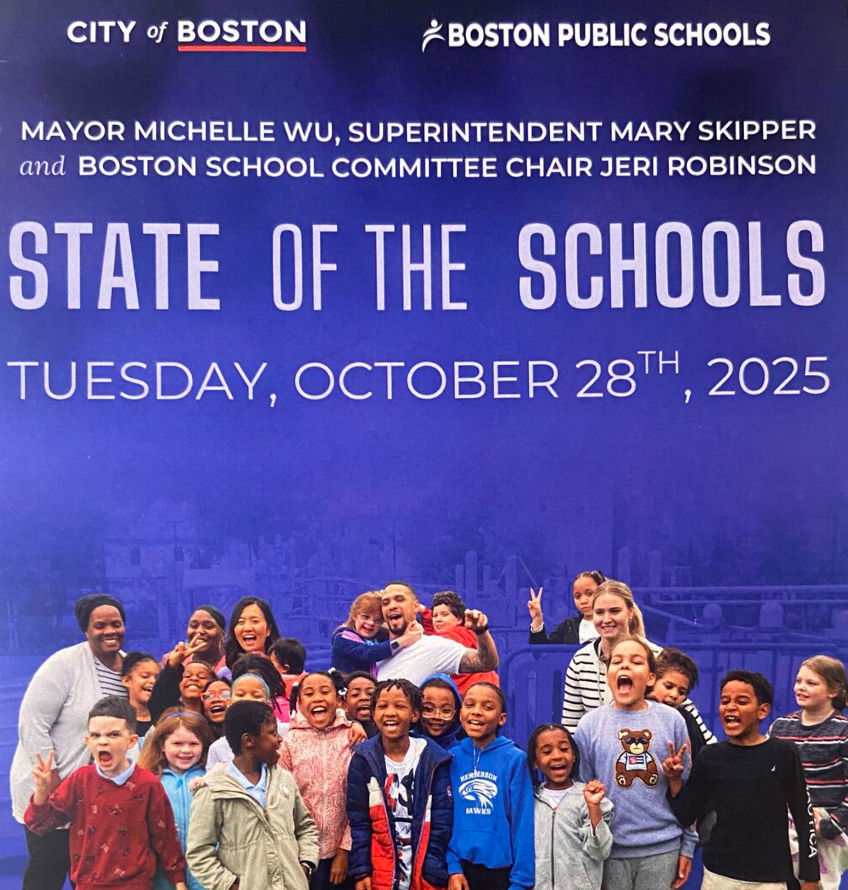Developing Leaders of Tomorrow: The Power of Participant-Centered Learning
- Ryan Bani Tahmaseb

- Jun 17, 2024
- 4 min read
This post is part of our ‘Reinventing Education' blog series, where we invite you to explore experiential learning opportunities in Greater Boston and embrace the potential for a new kind of educational ecosystem where learning thrives everywhere, not just in schools. We’re excited to showcase our fabulous partners for the upcoming WPS Summer Leadership Institute, building exciting connections and celebrating the collaborative spirit that drives educational excellence and positive social change.
Welcome to the third part of our blog series! We're excited to continue sharing the powerful experiences awaiting participants in our upcoming Summer Leadership Institute (SLI). This three-week program runs from July 8-26 on our campus in Newton Center. High school students will visit some of Greater Boston's most innovative spaces, learn real-world leadership skills, and begin to develop their own community impact projects. This week’s post highlights the innovative Christensen Center for Teaching & Learning at the world-renowned Harvard Business School, where our SLI students will have the incredible opportunity to participate in a case-based discussion.
The Christensen Center is dedicated to promoting participant-centered learning, an approach where the instructor centers students' voices and guides them through discussions. This method employs case studies that detail real-world problems, encouraging students to exchange ideas and build upon each other's perspectives. The Center coaches Harvard Business School teaching faculty, shares best practices, and conducts research on participant-centered learning.

We were delighted to chat with Alexandra Sedlovskaya, the Associate Director of the Christensen Center. With a doctorate in social psychology from Yale University, Sedlovskaya studies issues around diversity, inclusion, and belonging in organizations. Her specific area of research is in the self and identity, offering her valuable insights into what makes the case study method so engaging for both students and teachers alike. “We emphasize ‘discovering and uncovering,’ rather than just covering the material,” Sedlovskaya says. “Our approach focuses on students, who are truly seen as individuals – their voices are important. And they're also seen as part of the collective—the collective building of knowledge. We want them to feel like contributing members of a learning community.”

Building this sense of community involves learning to listen actively to others, and sometimes, sitting with the discomfort of disagreeing with them. “Participant-centered learning teaches us how to think critically, of course, but it also teaches us how to really, really listen to others,” Sedlovskaya explains. “It’s so hard to listen to perspectives that differ from ours—perspectives that might be even directly opposed to our own—and not dismiss them outright. Courage is a fundamental principle in our classes. And courage isn’t just about sharing your perspective, it’s also about listening to others’ perspectives and genuinely trying to understand.”
The goal is not necessarily to change anyone’s mind; it’s more about striving to understand where others are coming from. Sedlovskaya notes that this comes with other benefits, too. “At the end of the day, you might actually become more persuasive. If you want to change someone's mind, understanding where they're coming from is incredibly useful.”
However, often minds do change—and this can be a transformative experience. “Changing your mind, expanding your mind – that’s learning, and that takes courage,” Sedlovskaya explains. “To me, that's what participant-centered learning allows us to do. It’s more than just delivering content. Lectures are much more efficient at delivering content. But when it comes to teaching students essential skills needed today, such as having difficult conversations, participant-centered learning is extremely important.”

During the Summer Leadership Institute, our students will work on “Community Impact Projects” aimed at positively impacting their community by developing an event, space, or organization. To support their ideas, Sedlovskaya is excited to facilitate a case discussion around the legendary Antarctic explorer Ernest Shackleton. "I don't lower my standards," Sedlovskaya says with a smile. "When I come in, we'll start right away with the case discussion. First, I'll frame it: 'Why are we doing this?' I'll ask students judgment-based questions about the case, and we'll unpack and discuss their ideas, fleshing out key nuances. And then we'll step back and synthesize, at which point it's not going to be about Shackleton anymore—it will be about the students and their takeaways! And finally, from our discussion of the case, I'll ask them how they can apply what they've learned to their own contexts—to their own projects—and have them discuss it."
An expert at developing future leaders, Sedlovskaya's research on self and identity underpins her leadership philosophy. "Our own identities influence how we experience and interact with the world," Sedlovskaya explains. "As leaders, we need to be self-aware. Who are we? How do our identities impact how we perceive and react to others? And it's also about making sure that we understand the impact of other people's identities. How do we make everyone feel not just included, but also valued for having different identities?"
We are grateful for Alexandra Sedlovskaya's expertise, as her guidance will undoubtedly lead our students to powerful reflection, insight, and collaboration as these future leaders work to create positive change through their own Community Impact Projects.
Learn more about the Christensen Center for Teaching & Learning at Harvard Business School.
Join us for the WPS Summer Leadership Institute and discover a transformative educational experience! Applications are open now.

Ryan Bani Tahmaseb is a learning coach, curriculum developer, and author. He champions student choice, believes in the extraordinary potential of every learner, and is committed to harnessing the transformative power of meaningful relationships between educators and students.



Comments